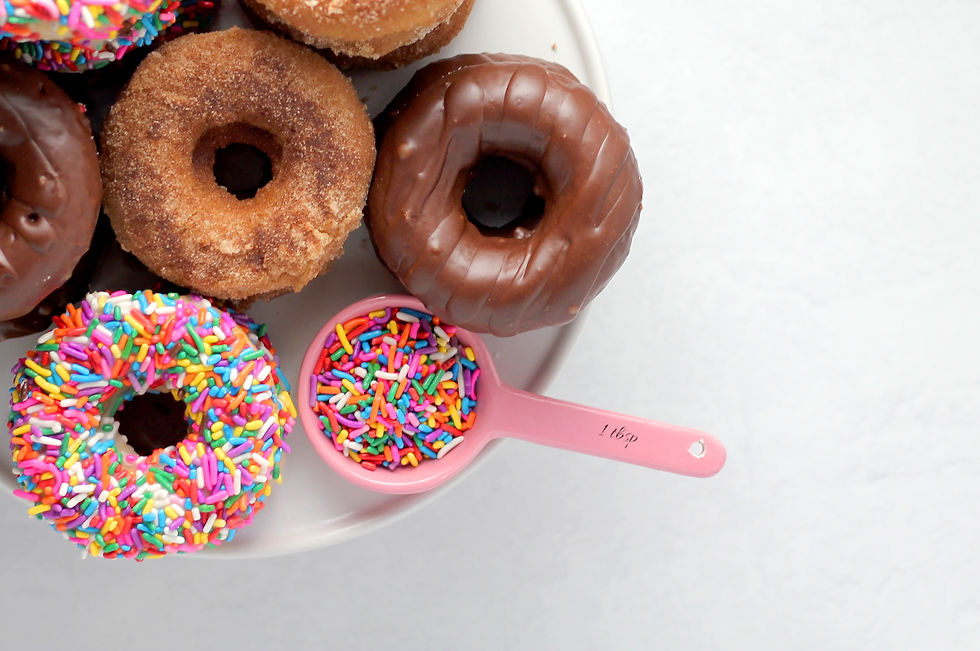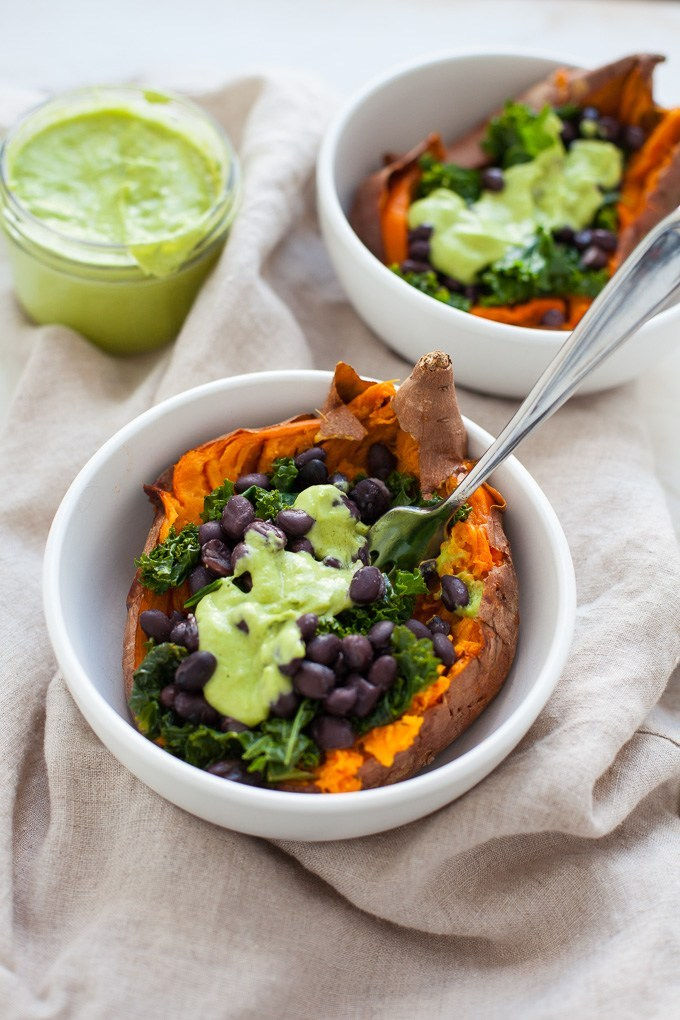WHY DIETS DON'T WORK And What To Do About It
- Grace Pascale
- Oct 22, 2019
- 7 min read
Updated: Jan 11, 2021

What a weak pile of foliage, am I right?
I mean, no shade to the photographer, but I'm going to need a little more than some dill-flavored yard work, a sprig of baby's breath (edible...?) and three and a half cashews to get me out of bed in the morning.
That's right, friends. Part time Dietitian, full-time salad troll.
I wasn't always so sour towards edible shrubbery. I suppose it all started when I realized most people's attempt to eat healthy and lose weight usually looks like a bowl full of greasy hedge trimmings, a few ounces of meat and a handful of - no, scratch that - hold the croutons, please.
After many years of lunch dates with girlfriends, staring across the table at the same boring garden salad + lemon water combo, and inevitably obliging to give them a bite of my potatoes/pasta/veggie burger/stir-fry/insert-starchy-deliciousness-here...I grew frustrated. How sad that all of these women I loved thought that #1. They needed to change their bodies in some way and #2. That deprivation was the only way to do it.
Fact: Diets certainly can promote weight loss in the short-term. But so can a good cocaine habit. So lets be clear here.
The goal isn't a smaller coffin. The goal is to have sustained energy, to feel satiated (full & satisfied), to be in love with the food you're eating, feel as though you are in a right-sized body, and to be free from intrusive thoughts about foods and/or body image.
And to live long. Or at least have the option.
With the eyes on that prize, lets poke holes in the status quo for a minute and figure out why diets just won't get you there.
#1. Diets get us out of touch with our natural hunger/fullness queues.
Whether were being told to limit our meals to a certain number of calories or avoid eating before a certain time of day altogether, diets that encourage us to ignore our hunger queues will ultimately be the reason we can't stop binge-eating once we've gone off of them.

Say it with me now, "HUNGER EXISTS FOR A REASON". We are the only species trying to suppress our innate biological drive to eat when hungry, yet also the only species with an epidemic of obesity and chronic disease. IT'S NOT WORKING, YA'LL. Watch any wild animal consume its natural diet (even when its there is an overly abundant supply). They eat until full and satisfied and then they walk away. We are suffering as a species not because of the portions we consume, but because we are eating foods that do not at all resemble our natural, physiologically appropriate diet. And worse than that, we don't even remember what it feels like when our body is kindly asking us to stop eating them.
#2. Diets promote the restrict, binge, repent, repeat cycle.
True or not true: Trying to eat smaller portions is like trying to take fewer breaths.
You can white-knuckle it for a bit, but nature will always have its way in the end.
The reality is most people consume the same weight of food each day. For some people that's three pounds, for others its five. But best believe if you're a four-pounder, and you try to portion-control your way to eating just three, your body's going to call BS on that real quick. And with a vengeance.
That's right, sister. You've just locked down a beautiful two-night stay in Binge-town USA. Nine bowls of cereal, bottomless Ben & Jerry's, those bran muffins you don't even like, you know the drill here.

#3. Diets damage your metabolism
An inconvenient truth. Insert Al Gore with a laser pointer here.
Diets actually decrease our resting metabolic rate or RMR (that is, how many calories we burn at rest), not just while we're on them, but likely permanently.
What's more, they also increase our hunger drive (boosting a hormone called grehlin) and decrease levels of the hormone that tells us were full and satisfied (known as leptin). OKAY EVOLUTION, I see what you were going for there with the whole "let's remind the starving human to eat" thing, but seriously...it's 2021 - We can tone it back on the ice cream cake fantasies. As if telling yourself you "can't have" something doesn't bring on enough intrusive thoughts about it, lets throw some primal-grade hanger in the mix. Thanks for that.
Additionally, weight-cycling as a result of chronic dieting (also known as yo-yo dieting, or losing and gaining weight over and over again) is associated with a myriad of health risks.

When you lose weight on a diet, you lose both fat and muscle mass. But when you gain it back, its primarily fat - leaving you worse off than if you were just to stay overweight in the first place (further decreasing your RMR, as you have less metabolically-active, calorie-torching muscle mass). Weight cycling also increases your risk for type 2 diabetes, fatty liver disease, high blood pressure, heart disease and obesity.
Lastly, it increases your set-point - a term used to describe the body’s preferred weight - which it will constantly try and gravitate towards (like a thermostat). Set points can go up, but they can’t come down, meaning the highest body weight you’ve been stable at for a consistent amount of time is where your body is
relentlessly fighting to return to.
Agreed. It's rude.
#4. Diets deplete will power
Wait. Will power is an actual, finite, measurable thing? I THOUGHT THE SAME THING YA'LL.
MIND. BLOWN. The answer is yes.
I'm going to use the term "fork" here in the off-chance that my grandma is knee-deep in this blog-post right now, but we all know which four letter F-word is on my heart.
We essentially have a finite amount of forks to give each day. Some people claim they give zero forks, but in actually their will power bank is just depleted as fork. If you give so many forks obsessing about your diet (limiting what you eat, telling yourself to avoid the donuts in the office, ordering the egg-white omelet when you want the pancakes, etc.) than you have less forks to give about the actual meaningful stuff in life. The stuff you should be giving forks about. Having patience with your children, communicating calmly with your spouse, putting in the extra effort on a project at work, etc. You know the stuff.
#5. Short-term thinking prevents long-term lifestyle change
Dieting and the "calories in versus calories out" framework are drastic over-simplifications of nutritional science. They not only completely disregard our relationships to food as dynamic, emotional human beings, but they also completely ignore the varying effects different foods have on our metabolism, satiety mechanisms and the microbiome.

We all know that wildly excessive calorie intake equates to weight gain. But calories, and the nearly impossible task of counting and budgeting them, is a problematic and obnoxiously tedious method for combating our nation's health epidemic.
As a country, we are overfed and undernourished. Point blank.
As long as we are not being fed the nutrients our body is so desperately screaming out for, we will constantly be ridden with cravings and food addictions, as our body's beg us to "help us, help them" function optimally by taking in sufficient micro-nutrient levels.
WHAT TO DO ABOUT IT
1. Count nutrients, not calories. Follow the foods with dark, rich pigments and disease-fighting phytochemicals. Get the biggest bang for your buck by packing as many colorful fresh fruits and vegetables and you can into your meals. This naturally lowers caloric intake without even trying, simply by changing the quality, not the quantity, of the foods you eat. Eat more, weight less.

2. Look after your little guys. Did you know the microbiome (the bacteria in your gut) play a HUGE role in weight management? Clinical studies have actually introduced samples of gut bacteria from overweight and obese individuals into the colon's of slender folks and found that these thin individuals actually gain significant amounts of weight, often becoming overweight or obese themselves, in a matter of months. That's the power of a poop transplant, my friends. Them little bugs in your colon are kind of a big deal.
The healthiest fuel for our gut microbiome is FIBER, specifically from whole grains and legumes. So stop fearing starch, and get wild at the baked potato bar for once.
3. Learn to eat intuitively by being mindful of your body's hunger and fullness queues, allowing yourself to eat until complete satisfaction, and paying attention to what foods make you feel your best along the way.
Studies show intuitive eaters not only weigh less, but also spend less time thinking about food than their dieting peers. On the other hand, those who try to restrict dietary intake via portion reduction tend to weigh more, are more likely to overeat in response to things like advertising, super-sized portions, and all you can eat buffets, and frequently overeat after indulging in a “cheat food”. You know, like when you agree to have a slice of the cake your Aunt made at Thanksgiving, and before you know it you've downed 80% of the thing, 3 sleeves of girl scout cookies and are on your way to making the pumpkin pie your next victim.

Drop the addict mindset. Let yourself indulge. Enjoy these delicious, previously-forbidden foods for what they are, and tune in to how each food effects your body and mind as you go. This way, you will ultimately land a more balanced diet centered around fuel that helps you thrive physically and mentally, with welcomed indulgences allowing you to stay sane along the way.
4. Lastly, if you remember nothing else, give yourself grace.
95% of all dieters fail on their diets and the other 5% are drastically more inclined to develop disordered eating behaviors. WHICH MEANS 100% OF DIETERS ARE COMPLETELY AND UTTERLY MISERABLE.
Recognize that society, irresponsible marketing, and diet culture have failed you. Not the other way around.
You were not put on this earth to just pay bills and lose weight. Our source of fuel was never meant to be an all-consuming source of anxiety and shame.
Allow yourself the opportunity to wipe the slate clean, refocus your energy, and rebuild the relationship with food and your body from the ground up.
For more specifics on the how-to's of flipping diet culture the bird and finding your way to vitality, self-love and food-freedom, you know where to find me. Until then, loves.
XO,
G
This post was written & medically reviewed by a Registered Dietitian Nutritionist.
Grace Pascale, MS, RDN. Grace Pascale Nutrition.



Comments